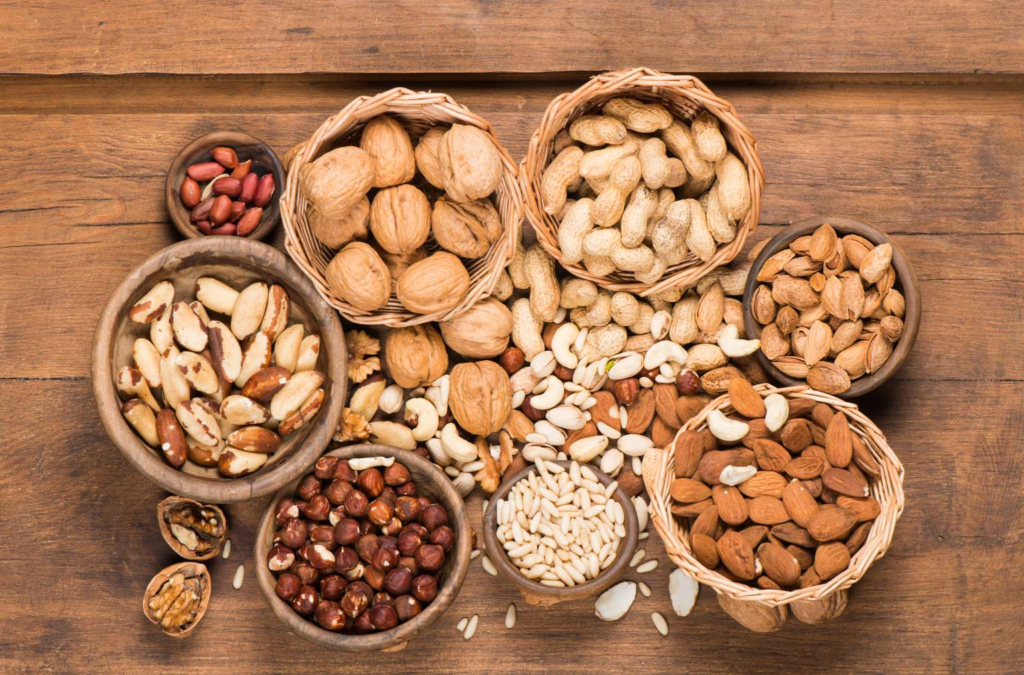How To Get Enough Zinc For Optimal Fertility


Zinc, an essential mineral vital for reproductive health, is indispensable for individuals aiming to conceive. This comprehensive guide delves into the significance of zinc in fertility and offers practical advice on incorporating this micronutrient into your lifestyle to promote optimal reproductive well-being.
- The Importance of Zinc in Fertility
a. Zinc and Sperm Health:
Zinc plays a critical role in male fertility by contributing to the production, development, and motility of sperm. Adequate zinc levels in men are associated with improved sperm quality, a crucial factor for successful conception. b. Zinc and Female Reproductive Health:
In females, zinc is essential for regulating the menstrual cycle, promoting hormone balance, and supporting egg development. Insufficient zinc levels can lead to menstrual irregularities, potentially impacting fertility. - Recommended Zinc Intake for Fertility
a. Daily Zinc Requirements:
The Recommended Dietary Allowance (RDA) for zinc varies by gender and life stage. For adults, particularly those focused on fertility, the RDA is approximately 11 mg for men and 8 mg for women. Meeting these requirements is vital for optimal reproductive function. b. Increased Zinc Needs for Pregnancy:
During pregnancy, zinc requirements increase to support fetal development. Ensuring sufficient zinc intake before conception lays the groundwork for a healthy pregnancy and reduces the risk of deficiencies affecting both mother and baby. - Zinc-rich Foods for Fertility
a. Lean Meats and Seafood:
Animal products such as beef, lamb, and seafood, especially oysters, are excellent sources of zinc. Including lean meats in your diet provides a readily absorbable form of zinc essential for fertility. b. Plant-Based Zinc Sources:
Legumes, nuts, seeds, and whole grains offer zinc-rich options for vegetarians or those seeking plant-based alternatives. While plant-based sources may have lower bioavailability, strategic combinations can enhance zinc absorption. - Absorption Enhancers and Inhibitors
a. Enhancers: Vitamin C and Protein:
Certain nutrients facilitate zinc absorption. Foods rich in vitamin C, like citrus fruits and bell peppers, as well as protein sources, aid the body in utilizing zinc effectively for reproductive health. b. Inhibitors: Phytates and Fiber:
Conversely, certain compounds hinder zinc absorption. Phytates, present in some grains and legumes, as well as high-fiber diets, can impede zinc uptake. Balancing these components in the diet is crucial for optimizing utilization. - Zinc Supplements for Fertility
a. Assessing Zinc Status:
Before considering supplements, it’s advisable to assess zinc levels through blood tests. Excessive zinc intake can have adverse effects, so supplementation should be tailored to individual needs. b. Choosing the Right Supplement:
Opting for high-quality supplements, preferably zinc gluconate or zinc citrate, ensures optimal absorption. Consulting with a healthcare professional can help determine the appropriate dosage based on individual requirements. - Lifestyle Factors Impacting Zinc Levels
a. Stress Management:
Chronic stress can deplete zinc levels in the body. Practices like meditation and yoga help manage stress, thereby preserving optimal zinc levels and supporting fertility. b. Alcohol and Caffeine Moderation:
Excessive alcohol and caffeine consumption can interfere with zinc absorption. Moderating these substances, especially during attempts to conceive, fosters a fertility-friendly environment. - Zinc and Male Infertility
a. Sperm Quality and Quantity:
Zinc deficiency in men is associated with reduced sperm quality and quantity. Maintaining adequate zinc levels through diet or supplementation supports overall male reproductive health. b. Impact on Testosterone Levels:
Zinc plays a crucial role in regulating testosterone levels, influencing libido and sperm production. Sustaining adequate zinc intake is essential for maintaining hormonal balance and supporting male fertility.
In conclusion, optimizing zinc intake is a fundamental step for individuals striving to enhance fertility. Zinc is indispensable for reproductive well-being, supporting sperm health and menstrual regulation. By incorporating zinc-rich foods, understanding absorption factors, and considering supplements when necessary, individuals can proactively support their fertility journey. Consulting with healthcare professionals and adopting a holistic approach to lifestyle choices ensures a comprehensive strategy for achieving optimal fertility and reproductive health.



